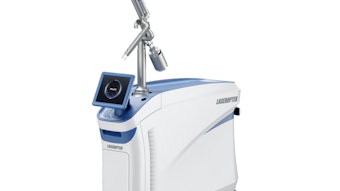
The International Society of Hair Restoration Surgery (ISHRS) awarded four grants to leading clinical investigators worldwide during its 24th World Congress in October 2016.
The recipients included:
Paul V. Shapiro, MD, of Minneapolis for “Use of Finasteride and the Onset of Depression: A Prospective Cohort Study.” The drug finasteride, sold under the brand name Propecia, is a widely used oral medication prescribed for male pattern hair loss (androgenic alopecia.) While effective, the drug may cause some side effects in a subset of men. In this study, Dr. Shapiro hypothesizes that patients with a predisposition to depression who take finasteride are more likely to develop depression than those without any predisposition. The goal is to help surgeons define better candidates for the therapy and minimize the risk of side effects among subsets of patients. Co-researchers include David S. Josephitis, DO, FISHRS, and Mark Schuler, PhD, both of Minneapolis.
Gregory Williams, MBBS, FISHRS, faculty member at University College London and Claire Higgins, PhD, lecturer, Department of Bioengineering at Imperial College London, England for “Bisulfite Sequencing of Human Dermal Papilla Cells.” Heterotopic ossification (HO) is the presence of bone in soft tissue where bone does not normally exist, typically resulting from musculoskeletal trauma, spinal cord injury, central nervous system injury and burns. Pain resulting from HO is severely debilitating, and no effective treatment strategies exist. In this study, the researchers will evaluate dermal papilla cells from hair follicles to better understand what happens to the structure of the cells and surrounding area in response to trauma. By more clearly isolating the mechanism of change in these cells due to high-energy trauma, they seek to define dermal papilla cell plasticity. This will aid to the understanding of how HO develops and, ideally, identify opportunity for more targeted treatments.
Ken L. Williams Jr., DO, faculty in the Department of Family Medicine at Western University of Health Science and Robert Alexander, MD, DMD, of Stevensville, Montana for “Biocellular Regenerative Therapy in Hair Loss: Use of High Density Platelet-Rich Plasma Concentrates and Cell-Enriched Emulsified Adipose-Derived Tissue Stromal Vascular Fraction.” The researchers will evaluate a novel approach to using a combination of stem cells and plasma for scalp injections to treat androgenic alopecia and female pattern hair loss. Principle investigators seek to identify if this unique method will stimulate follicle niche and hair growth to produce subsequent regenerative effects. Unlike other stem/stromal cell treatments and methodologies, the procedure is done in an outpatient setting using a tabletop device and does not involve cell enhancement, conditioning, manipulation or culture. Associate researchers are Robert Niedbalski, DO, of Tacoma, Washington; Bernard Nusbaum, MD, FISHRS, and Paul Rose, MD, FISHRS, both of Coral Gables, Florida; and Ryan Welter MD, PhD, of North Attleborough, Massachusetts.
Bradley R. Wolf, MD, FISHRS, of Cincinnati, Ohio for “Growth Factor Concentration Influence on Scalp Hair Grafts.” Platelet rich plasma (PRP) carries more than 20 growth factors. For decades, physicians across many specialties have used PRP to accelerate wound healing and tissue repair. Research shows improved hair growth and density when PRP is used for hair restoration surgery. Various agents and approaches are used to activate PRP, but little research has been done to evaluate the merits of each. With each, risks and costs vary. This study will examine PRP using one agent (calcium gluconate) and sonication (application of sound energy) to activate cells. Dr. Wolf will use this method as well as a method using sonication with a placebo, and then compare the two approaches side by side at the time of transplantation of scalp grafts. The study seeks to identify the benefits of a low-risk method of platelet activation such as sonication. John P. Cole, MD, of Atlanta and Chiara Insalaco, MD, of Rome, Italy, are co-researchers.
“The ISHRS has long supported clinical research because it promotes our medical association’s dedication to excellence in patient outcomes by promoting the highest standards not only in clinical investigations, but also in medical restoration surgery practice and ethics,” said Ken Washenik, MD, PhD, FISHRS, president of the ISHRS. “This year’s ISHRS research grant recipients are among leaders in their field, individuals who identify and perform important clinical studies that contribute to evidence-based best practices. We commend these professionals, and all who perform quality research in our field, for bringing new and proven options to those with hair loss.”
Photo copyright Getty Images.











